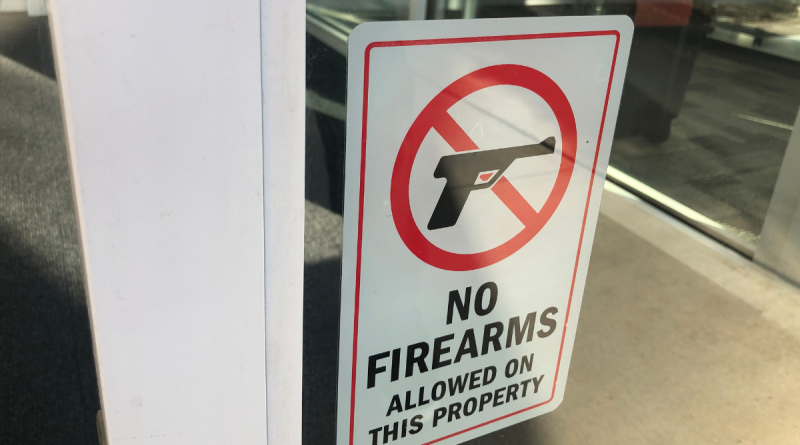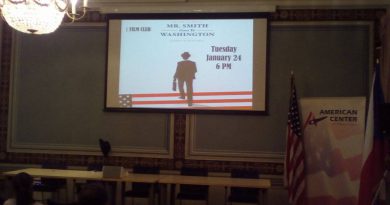Czech gun culture, a path forward for the US?
James Niiler –
The US is a strongly gun-friendly country. With the highest per capita rate of gun ownership in the world, guns are inextricably linked to American culture. Gun ownership is explicitly protected by the Federal Constitution, and guns are considered both practical and symbolic objects—not only used for sport, hunting, collecting, and self-defense, but also carried as a symbol of resistance to tyranny, an attitude born of America’s revolutionary and pioneer heritage.
But it’s a dangerous national pastime, and the situation in the US is beginning to spiral out of control. It’s rare when a day goes by without a report of gun violence, usually fatal, in the US media. School shootings and active shooter incidents have become distressingly common in recent years, and because of partisan polarization, little has been done politically to assuage the situation. Earlier this month, on May 9, a mass shooting occurred at a shopping mall in the town of Allen, Texas, with eight dead and seven wounded.
US active shooter incidents, 2022
There’s another country, however, where guns also represent resistance toward “big government.” Firearms are also relatively easy to access here, but it doesn’t suffer nearly the same problems of gun violence as the US does. In fact, it’s one of the safest countries in the world. Could this country’s gun culture provide a path for the US to follow? This country is the Czech Republic (ČR), located in central Europe.
“Firearms are a symbol of freedom,” says Milena Bačkovská, head of the Firearms Unit in the Czech Ministry of the Interior.
Jan Bartošek, a firearms expert and policy director also in the Ministry, agrees. “Pro-gun sentiments are quite strong,” he says. “Czechs don’t like arbitrary rules.”
Czechs’ association with firearms goes back hundreds of years. According to Bartošek, the first firearms legislation in Czech territory was issued in 1524. The right of gun ownership, however, was stripped from the public during the Nazi and Soviet occupations of the twentieth century, an effort of these regimes to suppress any potential dissent. Even those who owned hunting rifles came under political scrutiny.
Today, gun ownership in Czechia is mostly hobby-driven, Bartošek says. Despite the symbolic import surrounding firearms and the looser restrictions to obtain them, gun ownership here is low compared to neighboring countries. That said, recent events in the outside world have made more Czechs interested in obtaining guns for personal use, a situation with parallels to the American experience.
“There was an increase of people wanting to acquire a firearms license after the Russian invasion, especially women. Twenty-three percent of new firearms licenses were obtained by women,” says Bartošek.
Europe gun ownership per capita, 2023
Contrary to what some believe, the right to bear arms is not enshrined in the Czech Constitution. (Besides the US, the only other country that protects gun ownership as a fundamental constitutional right is Guatemala.) However, Czech gun ownership is regulated by the Firearms Act, and certain aspects of this law might make Americans uneasy.
“If you have a firearm, or you go hunting in a forest, then you have to have your special ID card, both for you and for the gun,” Bartošek says. “You have to pass a proficiency exam. There’s 50-55 percent of people who are unable to pass. There’s continuous oversight of other things (like) your criminal background. We have an electronic system that warns us when an individual commits a crime. Every general practitioner has the obligation to refer to the police when an individual is unfit for gun possession.
“A gun is owned by a licensed individual, or it’s illegal. There’s almost nothing in between.”
Bačkovská describes this centralized, highly regulated system as the “Habsburg effect.” “This might sound like totalitarianism, but it’s a different culture. We had a strong state 300 years ago”—referring to the Vienna-based Habsburg Empire, which ruled the territory of the present-day ČR for centuries. “I think the vast majority in our country agree (with this system), because the vast majority don’t possess firearms.”
As a Member State of the European Union, Czechia is also occasionally subject to policy directives, including those related to firearms, issued from Brussels. This has led to grumbling from some Czechs about the arbitrary rules they so despise, even as they don’t appear to mind others. “Their attitude is in the saying, ‘The Nazis took my grandfather’s rifle, the Communists took my father’s, now the EU wants to take mine,’” Bartošek says.
David*, a police officer working in Prague, also acknowledges guns are used primarily for hobby purposes in the ČR. David enjoys going to the shooting range with friends, but even as a law enforcement official, he has no real need for firearms.
“(My interest in firearms) is not connected to my job at all, because I am from a half-military, half-police officer family, so there were always some firearms in my life. I was going to the shooting range with my father since I was ten years old. In my position where I am now, there is absolutely no need to have a firearm. It’s like an office desk job.”
Despite the centralized nature of the gun registration system, obtaining a gun in the ČR is less difficult than in many other countries, an important similarity to the US.
“You just need to have a paper from the doctor saying you’re healthy enough to own a gun, and then you pass the tests, the practical shooting tests, and that’s all. So it’s quite easy to get a gun with a license in the ČR,” David says. “If you don’t have some criminal history, if you haven’t been convicted of anything, then you can get it any time you want.”
Bartošek says, however, that while a psychological evaluation is not usually an essential component of the health evaluation, it can still occur via mandatory request from a relevant authority.
“You can be asked to undergo a psychological evaluation by your general practitioner either based on his or her own doubt, or upon a request by the police,” he says.
Europe active shooter incidents, 2023
David ultimately attributes the more relaxed firearms legislation in the ČR to gun ownership here being such a niche interest that responsible, capable owners are essentially self-selected. “I think it’s because the type of people who go through the process of getting a gun permit and firearm…it’s because of the small amount of specific people who go through this,” he says.
Regarding gun violence in the US, Bartošek says that different attitudes prevail among Czechs. “People from the intellectual elite are accustomed to US news and articles, and adopt viewpoints of the American media. Usually they don’t know the facts about Czech firearms legislation, but they know a lot about the US’, and they mix the facts,” he says.
“But when you speak with almost anyone else, especially firearms holders, they don’t usually think the main problem is firearms. They usually speak about inequality, lack of affordable healthcare—especially psychiatry—and the social mores. They often say Americans should adopt something like the registration system, or demonstrate proficiency, or have criminal background checks.”
David also says that shootings in the US make little impression on the Czech public, as they happen so far away, and such events are nearly inconceivable in one of the world’s safest countries.
But, he says, it’s best to be prepared. He’s watched footage of police responses to two school shootings in the US—the May 2022 shooting in Uvalde, Texas, and the April 2023 shooting in Nashville, Tennessee. “Here, we don’t have SWAT like in the US, consisting of a lot of guys who probably transferred from the military after 20 years of service,” he says. “So I’ve seen some very stupid videos from Uvalde and it was not very professional.
“But on the other hand, I’ve seen some tapes from the last shootings (at the Nashville school) and the response was very professional. You could see the patrol, the two guys who went in first, were very professional. You could see they had some military background, because how they were communicating and how they were manipulating the guns, and how they resolved the situation quite fast. So for me it’s quite interesting to see the procedures, see how to prevent such a situation if it happens here.”
Czechs possess similar attitudes toward firearms as Americans do. Yet they are also comfortable with firearms regulations that many Americans would view as intrusions on their personal freedoms. This has resulted in a society where firearms are respected and valued, but also one that is among the world’s safest. Are Americans likewise willing to sacrifice aspects of their freedom to ensure the safety of society? The answer is uncertain.
The article was written in the course Foreign Correspondence under the supervision of Mgr. Veronika Macková, Ph.D. and doc. PhDr. Alice Němcová Tejkalová, Ph.D.
Illustration photo: Canva




